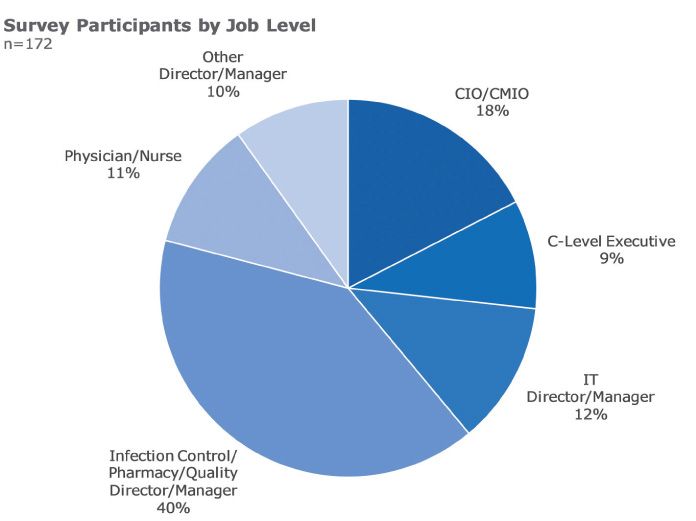ICU Management & Practice, Volume 17 - Issue 2, 2017
Healthcare providers are increasingly turning to technology to detect sepsis and report on sepsis management. As most electronic medical record (EMR) providers do not offer easily deployed sepsis modules, healthcare providers report using solutions from infection control and surveillance vendors as well as specialised sepsis solutions. KLAS Research’s new report, Sepsis 2017: Which Vendors Can Help?, provides clarity on which vendor solutions can help hospitals tackle sepsis. The report includes feedback from over 150 phone interviews with sepsis thought leaders on their strategy and utilisation in regard to sepsis technology and solutions.
Vendor Performance
Vendors included in the report are Allscripts, Cerner, Epic, McKesson, MEDITECH, Iatric Systems, PeraHealth, Truven Health, VigiLanz, Wolters Kluwer, d2i, Health Catalyst, Logic- Stream, Iodine Software, Qualcomm, Uniphy Health and WPC Healthcare. KLAS note that they included vendor-supported sepsis technology and services in the report, but other providers may address sepsis more broadly via the automation of infection control. Most solutions offer real-time alerting; Health Catalyst and LogicStream provide retrospective reporting.
Healthcare providers did report positive outcomes in regard to compliance, mortality, length of stay, readmissions and cost. However, KLAS notes that their report is not designed to compare vendors in relation to outcomes, as this is not directly comparable.
Kody Hansen, Research Manager at KLAS, told ICU Management & Practice that the questionnaire administered in the interviews was derived from collaboration with sepsis thought leaders around the U.S.

Hansen confirmed that KLAS plans a follow-up study in 2018, which will delve into straightforward differentiation of the vendors by performance criteria. “In addition to tracking adoption and implementation of sepsis solutions, we will also try to determine who the standout players are and who is making the biggest difference for their clients in terms of tangible outcomes, effective alerting and helping to manage workflow and screening and many other processes that are inherent to effective sepsis management,” he added.
“With these sepsis solutions, we are finally seeing some of the value realisation attributed to clinical decision support tools that has historically been lacking. These tools are evolving from being point solutions to proactive intelligence at the point of care,” concluded Hansen.
More Information
Providers may receive a free copy of the full report by contacting Kody Hansen, Research Manager, KLAS Research, kody.hansen@ klasresearch.com





